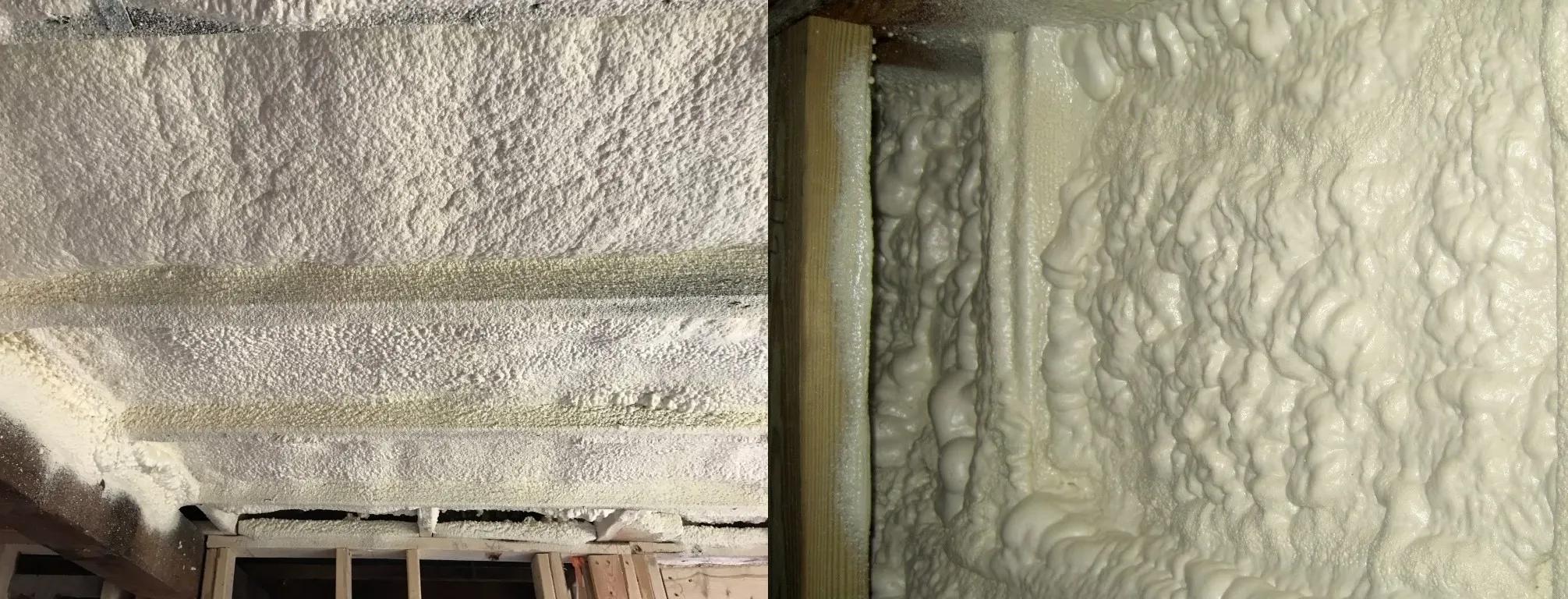
Spray foam insulation is widely used for its effectiveness in sealing gaps, improving energy efficiency, and enhancing structural integrity. Homeowners and business owners in Zionsville, IN, often choose between closed-cell and open-cell spray foam for insulation. The longevity of each type plays a key role in selecting the best option for local climate conditions and structural needs.
Closed-cell spray foam consists of tightly packed cells filled with a gas that expands during application. This structure gives it a dense and rigid quality, contributing to its durability and higher R-value per inch.
Open-cell spray foam has a lighter, more flexible structure. The cells are not completely closed, allowing air and moisture to pass through. This makes it softer and less rigid compared to closed-cell foam.
Zionsville, IN, experiences cold winters and humid summers, making insulation a crucial factor for energy efficiency and comfort. The performance of spray foam insulation in this climate depends on factors such as temperature fluctuations, humidity, and seasonal weather conditions.
The best choice depends on the specific needs of a building and its exposure to environmental factors. Here’s how to determine the best fit:
Proper installation plays a crucial role in maximizing the lifespan of spray foam insulation. Professional installation ensures that the foam adheres properly and expands evenly.
Selecting the right spray foam insulation depends on factors like durability, climate resistance, and cost-effectiveness. Closed-cell spray foam outlasts open-cell foam in most cases, making it the preferred choice for long-term energy efficiency and moisture resistance in Zionsville homes and businesses.
For professional installation and expert guidance, contact Spray Tech Solutions at (765) 480-8200 or email sales@spraytechkokomo.com.
Closed-cell spray foam can last 50 years or more with proper installation and maintenance.
Open-cell foam is not recommended for exterior applications without a vapor barrier due to its moisture absorption properties.
Closed-cell foam has a higher R-value per inch, making it more efficient for thermal insulation.
Periodic inspections ensure optimal performance. Closed-cell foam requires less maintenance than open-cell foam.
Yes, by sealing air leaks, spray foam insulation reduces allergens and improves indoor air quality.
Yes, it provides excellent air sealing and soundproofing for attic spaces.
Properly installed closed-cell spray foam remains stable, while open-cell foam may experience slight shrinkage over time.
Cost varies based on foam type, application thickness, and the size of the area being insulated.
Professional installation is recommended for safety and effectiveness, especially with closed-cell spray foam.
Yes, both types improve energy efficiency by reducing air leakage and enhancing temperature control.